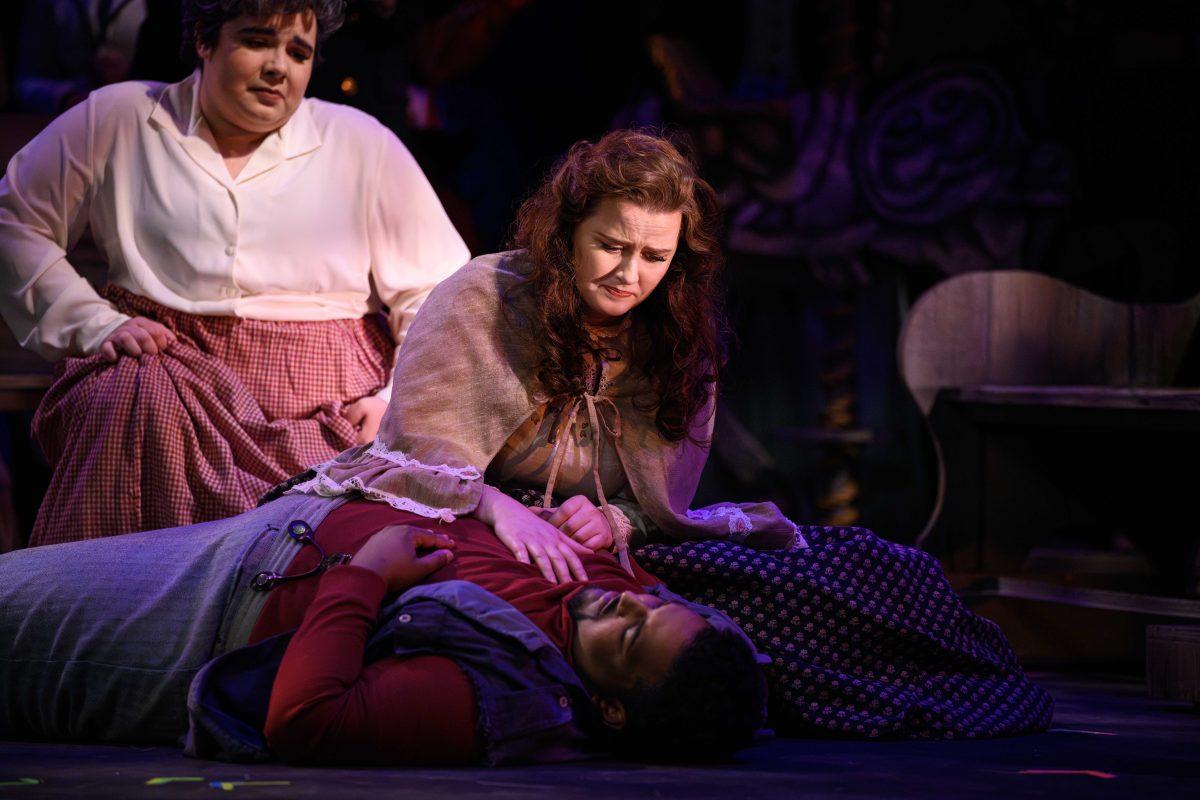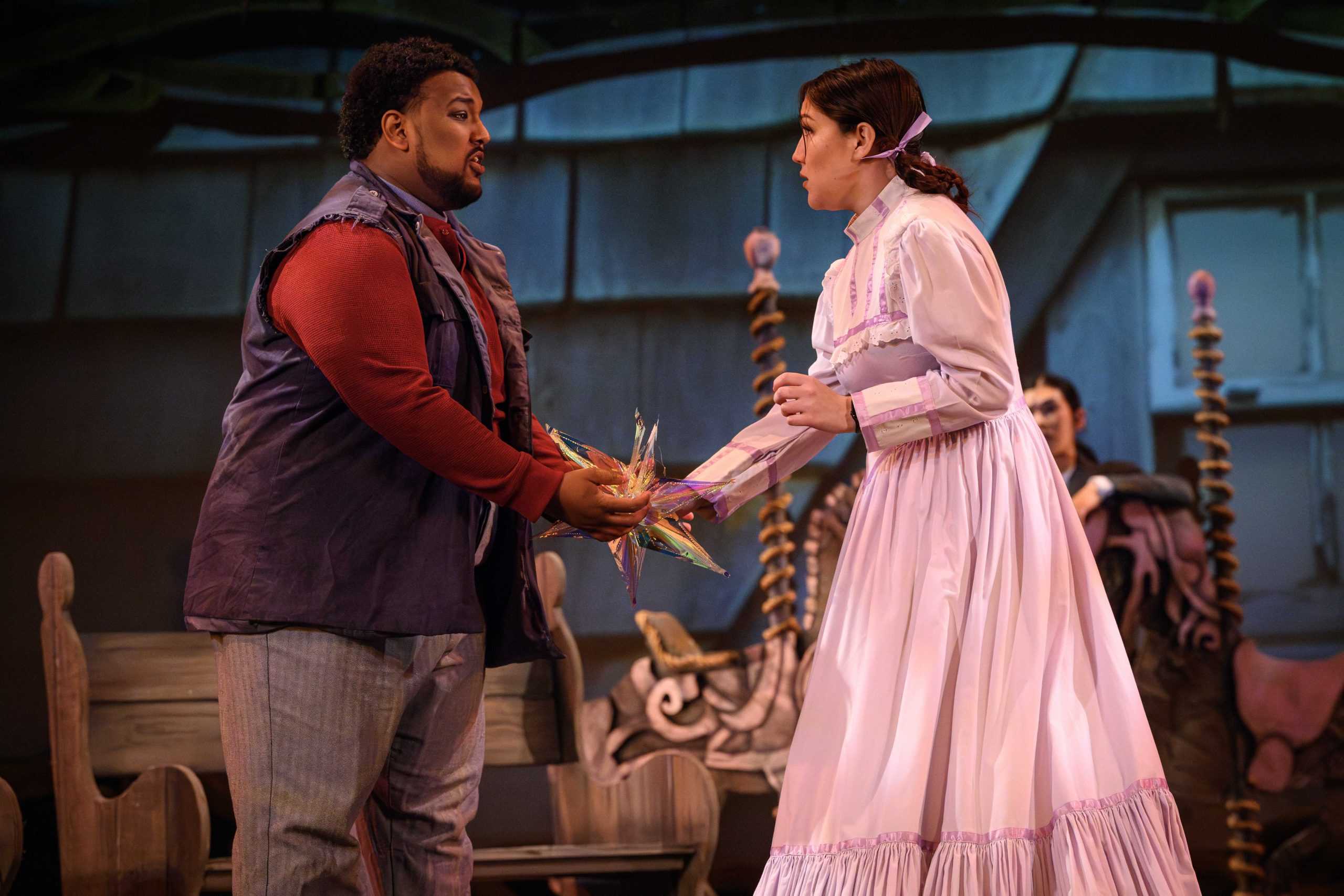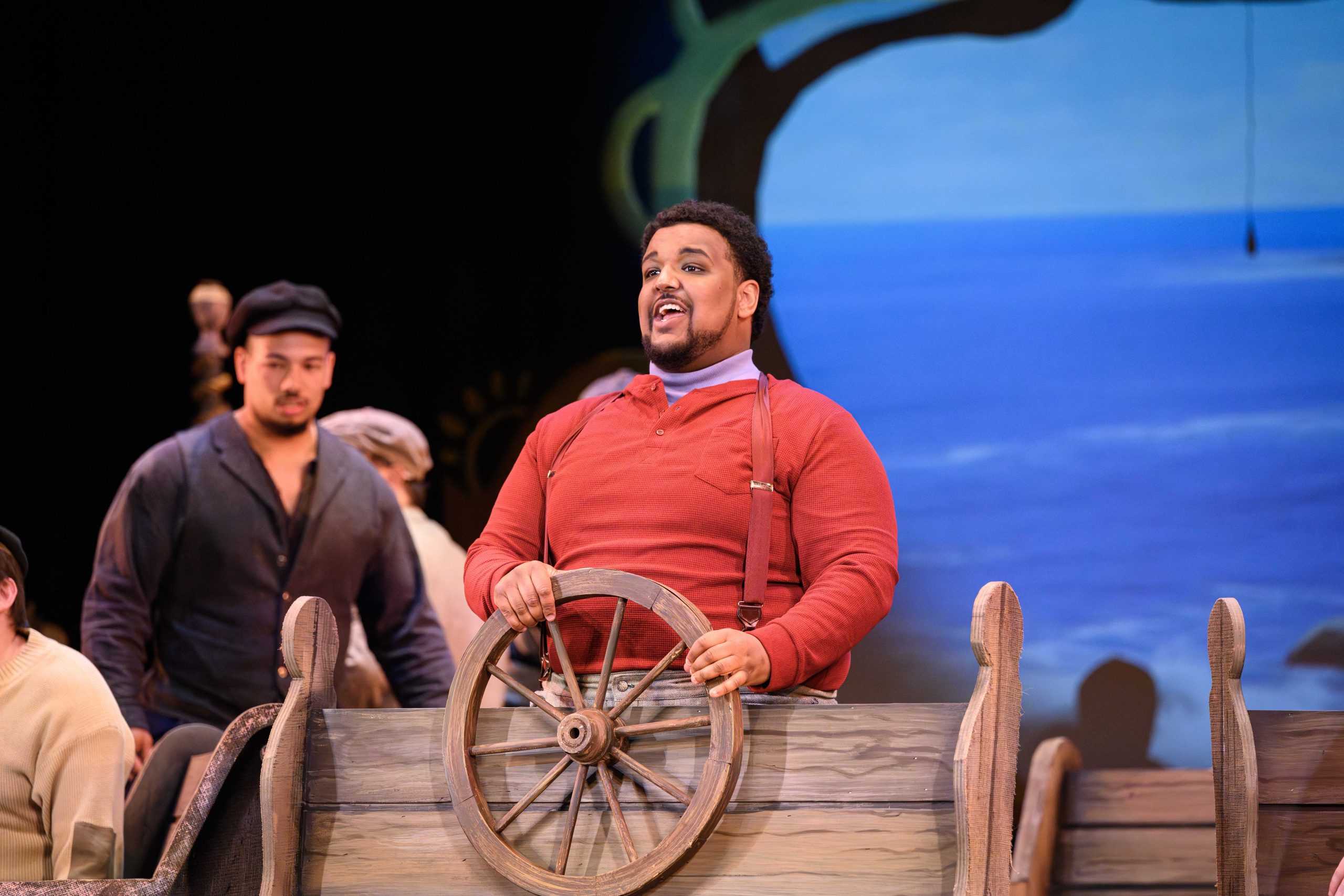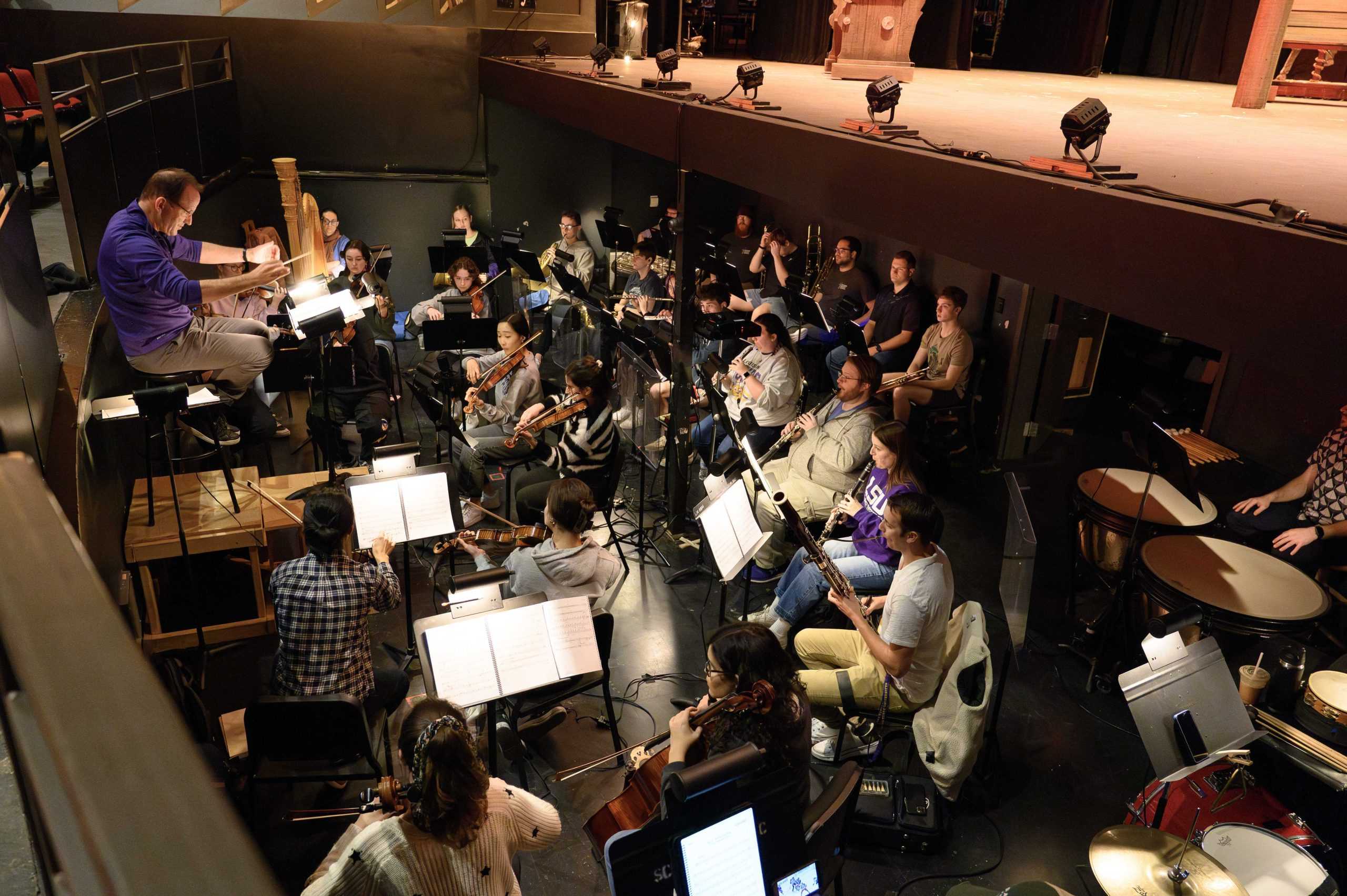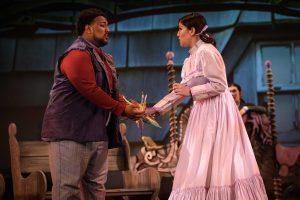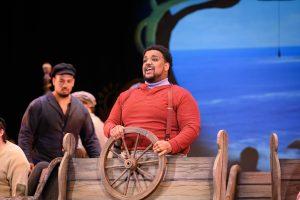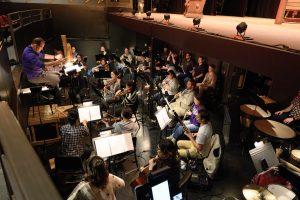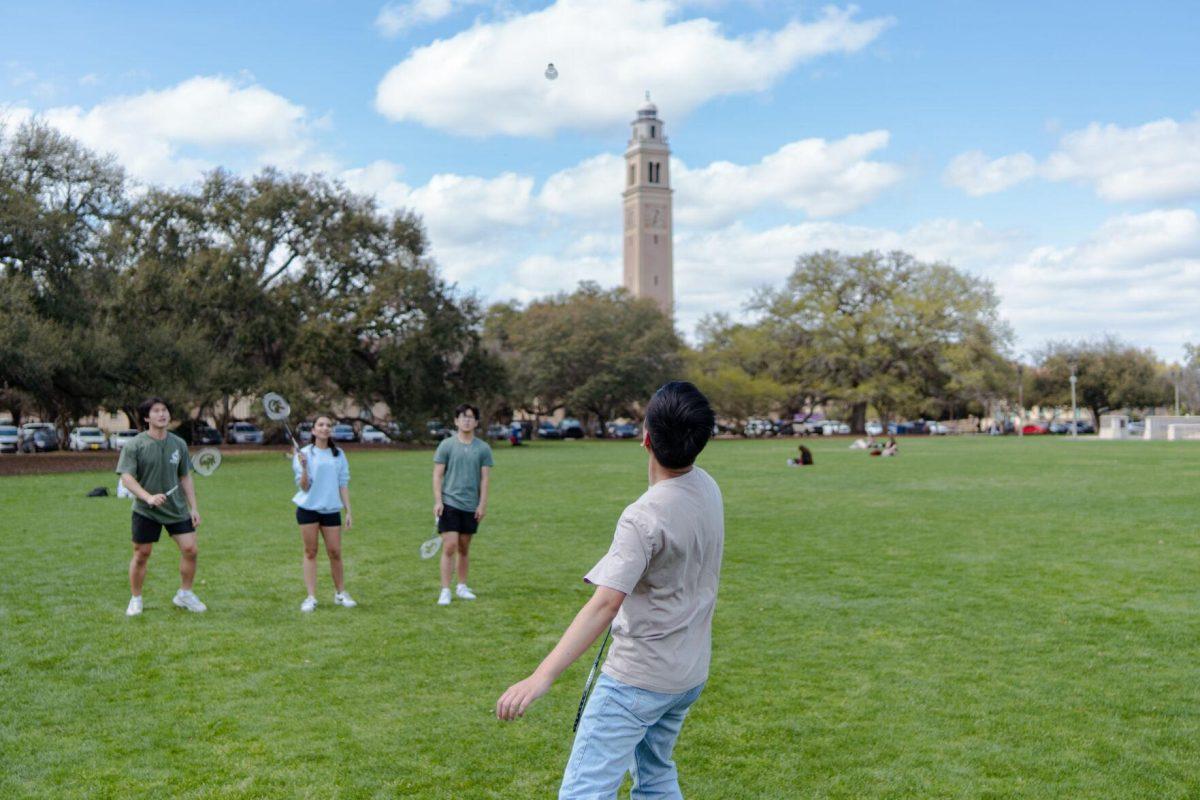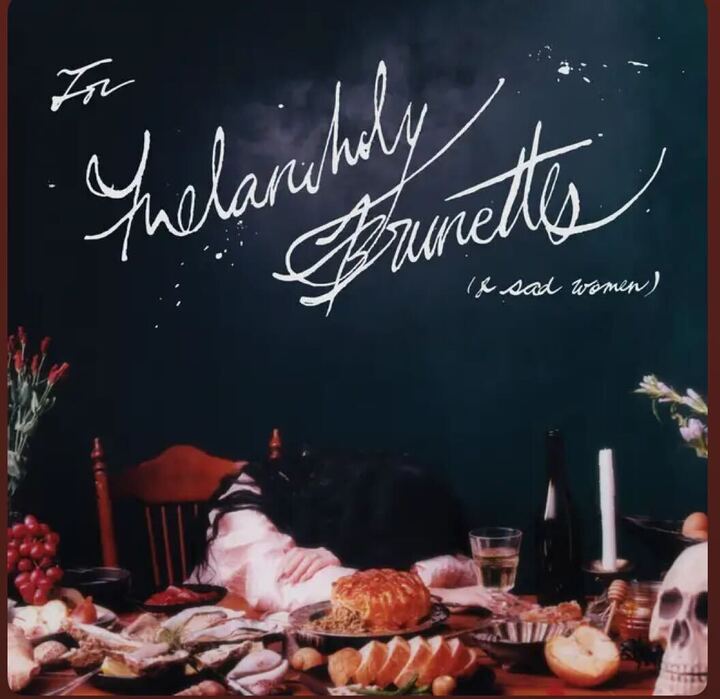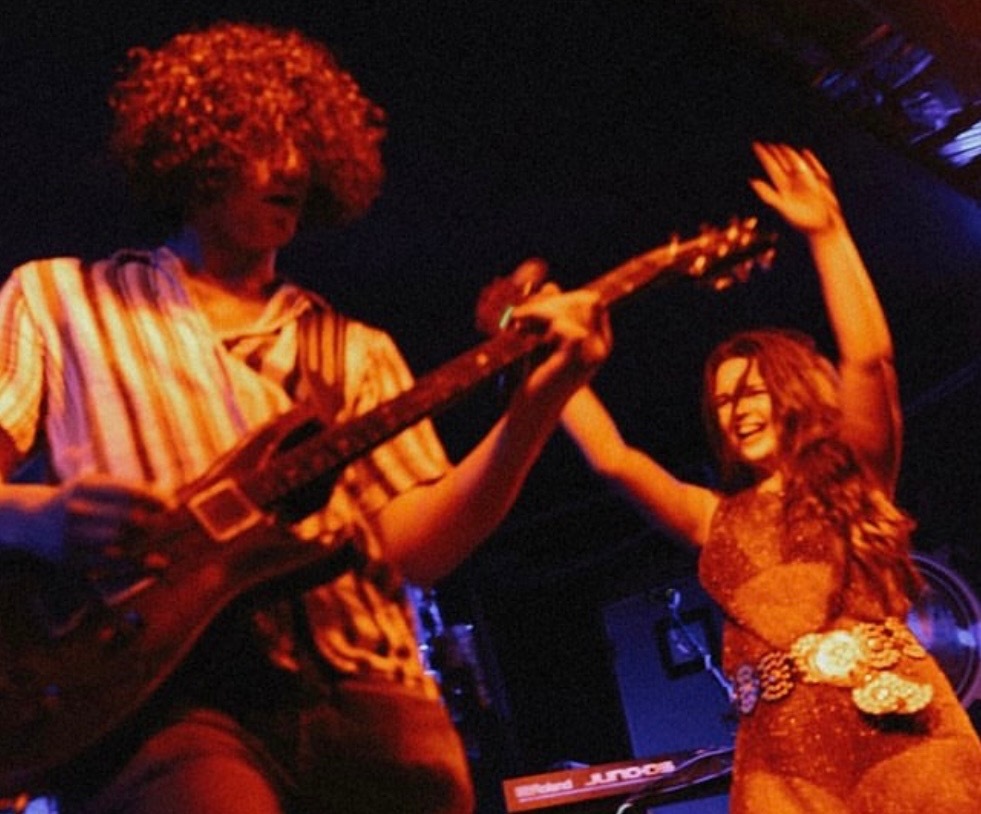As the curtain rises above the stage, the orchestra hums in tune of the prologue opening the musical “Carousel.” The show opened on Friday, March 22, and had a matinee performance on Sunday, March 24.
All performances were held in the Shaver Theatre inside the Music and Dramatic Arts Building. The show was a partnership between LSU’s Turner-Fischer Center for Opera and the LSU Orchestra.
The artistic director of the Turner-Fischer Center and the Stage Director for the show, Dugg McDonough, is a longtime fan of classic American musical theater. He discussed the training program’s use of “lyric theatre,” which embraces both opera and musical theatre and operetta.
He also believes that Golden Age shows, or the era of American musical theatre from the ’40s and ’50s, like “Carousel” have become more common in production in opera companies today.
“So many opera companies are programming pieces like Carousel right along with the traditional operas,” McDonough said. “Part of it is training people for the real world that they’re going to enter but also, I want it to be known to our audiences and to the students here that Golden Age musicals are classics that we need to perform and respect and learn from and just adore.”
You may typically see “Carousel” on a Broadway stage despite it not originally being written for the actors to have microphones. The style of singing changes when the actors have to sing over the orchestra without a mic.
A majority of the actors in this show, including the show’s lead Yonathan “Yoni” Astatke, are trained in only opera, so the dialogue heavy script presented a challenge at first. Astatke is a first year master’s student in vocal performance and he portrayed the role of Billy Bigelow.
“We’re mainly opera singers, so we’re not really used to having a lot of dialogue like this in a show,” Astatke said. “That’s been something that has been really tricky that we’ve all had to work extra hard to get right. But it’s been a really good learning process for me.”
Astatke also said that his role as Papageno in the production of “The Magic Flute” last semester inspired him to audition for this show. Billy Bigelow was Astatke’s dream role, and he said he never thought we would get the opportunity to play the character on stage.
“I’m not what you consider to be like traditional norms of being attractive in some people’s eyes. Like I don’t really look chiseled or, like, statuesque or anything. So I always thought this role was something that I would never get the chance to do,” he said.
Maura Schaefer, second year master’s vocal performance, discussed her favorite parts of her character Julie Jordan the other lead in the show.
“Julie Jordan is a very interesting character,” Schaefer said. “I honestly just love the music that she gets to sing. ‘If I Loved You’ is this gorgeous, very well-known piece. The beautiful duet between her and Billy in the first act is just really wonderful. And then, how she interacts with all the other characters in the show is interesting and fun to be a part of.”
Schaefer also shared how the show’s blend of music and dialogue creates a truly immersive experience.
“I think what makes ‘Carousel’ unique and different from other musicals that you might be familiar with is that there’s a lot of music that underscores the dialogue,” Schaefer said. “For instance, our big ‘If I Loved You’ the scene, it’s like 15 minutes long with dialogue and singing interspersed in it. That’s been really interesting to approach since you’re doing everything and at once.”
The piece requires singing, acting and doing dialogue all at once as well as proper timing with the orchestra.
Rodger and Hammerstein’s works still have relevance today. This show specifically has strong social messages, one of the most important topics covered domestic abuse.
“I want the audience to take away from this performance that domestic abuse is not okay,” Astatke said. “I want the audience to always speak up whatever they see it happening. This role was a blueprint and like a crash course on what not to do, and how not to treat people. So I just, if nothing else I want the audience to take from this that Billy isn’t someone who you want to aspire to be and that domestic abuse is serious.”
A unique characteristic of this show versus other “Carousel” productions is that the set is designed to look like an actual carousel and is completely movable. The actors organically move the set pieces around the stage throughout the show. This not only paints beautiful stage pictures but also helps move the story along while tying everything together.
“This is a piece I’ve wanted to do for decades and never had the opportunity to do it,” McDonough said. “I’ve always wanted to do it in a way that our production creates the show. Those pieces you see all move and the carousel itself becomes like a metaphor for the personal relationships in the piece. I’ve never seen a production carousel that approaches it the same way we have. I’m very proud of that.”
Astatke said his favorite moment in the show is his eight-minute song at the end of Act One, “Soliloquy.” The song reflects on fatherhood and breaking patterns of violence.
“Soliloquy is really special for me because soliloquy is a piece that I worked on all throughout my undergrad,” Astatke said. “Getting a chance to do it in the role with an orchestra has been something that’s really really special for me. The last minute or two of the song where he’s like, ‘No, I will not let this kid be like me. I want to break these patterns of violence that I’ve been subjected to for my whole life. I want to do right by my family.’ That’s like a very poignant moment for me.”



